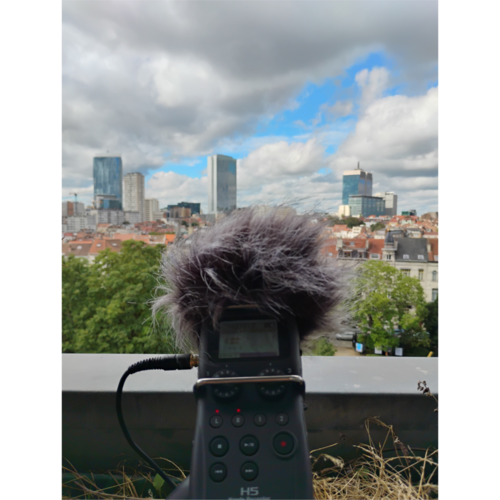Sound and Decolonized Knowledge? The Radio Composer as Ethnographer
In the international field of radio art, artists increasingly use research-based documentary strategies to address social, political and cultural realities of subaltern groups in their works. They perform sound-based ethnographic and historiographic research in various sites, combining the resulting recordings, interviews and archival materials with electroacoustic composition into hybrid pieces, that often closely engage with academic discourses of post- and decolonial studies. While this art practice constitutes a rich field to study sound and knowledge formation, it has gone largely unnoticed in the academy. Filling this gap, my project examines the use of radiophonic sound to create and present knowledge about reality and history, and the sound practices and aesthetics this gives rise to. Joining approaches from sound studies and the growing musicological research on radiophonic composition, I make an in-depth study of the Klangkunst program of the German broadcaster Deutschlandfunk Kultur between 2009 and 2020 and five pieces it produced. Through an archival study, I trace the discourse formed in this institutional context of radio art on radiophonic sound’s ability to offer counter-hegemonic knowledge about reality. I then turn to how individual artists concretely use sound to create and present knowledge about reality in their research process and pieces. Drawing on interviews with the artists and close analyses of their pieces, the aim is to uncover how academic knowledge of ethnography and post- and decolonial studies is performed and transformed into specific sonic methods and dramaturgical and aesthetic strategies.

